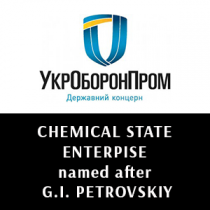Science Center's Multi-Institutional Proof-of-Concept Program Awards $700,000 to Accelerate Technology Commercialization at Four Leading Institutions
PHILADELPHIA, Feb. 6, 2019 /PRNewswire-PRWeb/ -- Ten years after the launch of the first multi-institutional proof-of-concept program of its kind, the University City Science Center's QED program announced its eleventh round of awardees. The projects tackle critical healthcare needs including a mechanized brace enabling patients with mobility issues to walk longer and farther distances; a vest that relieves shortness of breath in chronic obstructive pulmonary disease; an immunotherapeutic treatment for pediatric neuroblastoma; and a diagnostic test for the assessment of traumatic brain injury.
Researchers from Children's Hospital of Philadelphia, Temple University, the University of Delaware and the University of Pennsylvania will receive a total of $700,000 contributed by the Science Center and the academic institutions they represent. In addition to financial support, each project has been matched with a business advisor from the Science Center's network of over 150 industry professionals and serial entrepreneurs. The business advisors work with researchers and technology transfer offices to evaluate a go-to-market strategy and prepare a commercialization funding plan for each technology.
Established in 2009, the QED program supports novel university technologies with market potential, bridging the gap between academic research and product commercialization. The awardees were selected from a pool of 50 applicants from 12 institutions in Pennsylvania, New Jersey and Delaware.
"Over the last ten years, we've worked with over 100 researchers developing promising technologies in an effort to bridge the divide between basic research and technology commercialization," says Science Center President & CEO Steve Zarrilli. "Thirty-eight projects funded and ten licensing deals later, we're proud of the platform we've developed and the impact we've seen as a result of the program."
Round 11 awardees:
Ahad Behboodi, Ph.D., of the University of Delaware is developing a compact and soft mechanized brace for people with ankle control deficits, to help them walk more easily and longer. This orthosis will assist ankle muscles to correct and improve ankle motion in pathological gait, especially in children with cerebral palsy, thereby potentially increasing walking distance and efficiency, leading to better mobility and social integration.
Jacob S. Brenner, M.D., Ph.D., of the University of Pennsylvania is developing a vest that relieves shortness of breath in chronic obstructive pulmonary disease (COPD) patients. Two million Americans with severe COPD (popularly called emphysema) experience such terrible shortness of breath that they are unable to climb a single flight of stairs. The AIR-AD vest looks like a normal clothing vest, but underneath contains an ultra-lightweight shell that offloads the patients' work of breathing, thus enabling them to engage in activity without suffering shortness of breath.
John M. Maris, M.D., of the Children's Hospital of Philadelphia is developing a T-cell based immunotherapeutic treatment for children with neuroblastoma. Cellular immunotherapy has rapidly revolutionized the treatment of cancer, in many cases achieving cures in as little as one dose, but have only benefited a small subset of patients with blood cancers. Dr. Maris and his team have identified several highly specific targets in high-risk neuroblastoma and engineered a cellular therapy directed at these targets with potent killing against tumor cells. QED funding will enable the safety optimization of these therapies to prepare for preclinical testing.
Servio H. Ramirez, Ph.D., of the Lewis Katz School of Medicine at Temple University is advancing the development of a blood test for the evaluation of traumatic brain injury. The test measures targets located on small bits of material called extracellular vesicles, which are released from injured vessels during brain trauma. This patented technology has the potential to support healthcare providers as they diagnose, monitor recovery, and possibly predict outcomes associated with brain injuries.
"The QED process was rigorous, educational, and at the end of the day, made our entire research program much more translatable to our patients," says QED awardee, John M. Maris, M.D. of the Children's Hospital of Philadelphia. "Our QED Business Advisors were outstanding in helping us create the best possible proposal and presentation, and build bridges with essential collaborators. We very much look forward to continuing our work with the Science Center and our QED Business Advisors to realize our dream of curing currently incurable advanced cancers."
In addition to the four funded projects, eight additional scientists working on early-stage life science and healthcare projects received critical business support in developing their proof-of-concept plans: X. Lucas Lu, Ph.D. of the University of Delaware; Patricia McLaughlin, MS, DEd of the Penn State College of Medicine; Peter Nguyen, Ph.D. of the New Jersey Institute of Technology; Oscar Perez, MD of Temple University; Qinyin Qiu, Ph.D. of Rutgers, The State University of New Jersey; Roozbeh Sadeghian, Ph.D. of Harrisburg University of Science & Technology; Frederick Silver, Ph.D. of Rutgers, The State University of New Jersey; and Eric Wickstrom, Ph.D. of Thomas Jefferson University.
The 12 QED finalists received customized coaching from industry experts, exposure to the investment community, access to regulatory and intellectual property specialists, and support to develop a commercialization funding roadmap. This support armed the researchers with the knowledge and tools needed to pursue follow-on funding that will help their early-stage projects advance along the commercialization pathway.
Since the program's inception in 2009, QED has screened over 640 proposals from 21 participating academic and research institutions. Of the technologies screened, 128 projects have been accepted into the competitive program. Projects awarded funding by the QED program have raised over $22 million in follow-on funding.
QED receives support from the Department of Health of the Commonwealth of Pennsylvania.
About the Science Center
Located in the heart of uCity Square, the Science Center is a mission-driven nonprofit organization that catalyzes and connects innovation to entrepreneurship and technology commercialization. For 50+ years, the Science Center has supported startups, research and economic development in the life sciences, healthcare, physical sciences, and emerging technology sectors. As a result, graduate firms and current residents of the Science Center's incubator support one out of every 100 jobs in the Greater Philadelphia region and drive $13 billion in economic activity in the region annually. By providing resources and programming for any stage of a business's lifecycle, the Science Center helps scientists, entrepreneurs and innovators take their concepts from idea to IPO - and beyond. For more information about the Science Center, go to http://www.sciencecenter.org
About the QED Proof-of-Concept Program
The QED Program provides funding and business development support for academic researchers developing early-stage life science and healthcare technologies with high commercial potential. A common participation agreement that defines matching funds, indirect costs, and intellectual property management, has been signed by 21 universities and research institutions in Pennsylvania, New Jersey and Delaware: Children's Hospital of Philadelphia, Delaware State University, Drexel University, Fox Chase Cancer Center, Harrisburg University of Science and Technology, Lankenau Institute for Medical Research, Lehigh University, Monell Chemical Senses Center, Moravian College, New Jersey Institute of Technology, The Pennsylvania State University, Philadelphia College of Osteopathic Medicine, Rowan University, Rutgers, The State University of New Jersey, Temple University, Thomas Jefferson University, University of Delaware, University of Pennsylvania, University of the Sciences, Widener University, and The Wistar Institute.
SOURCE University City Science Center





